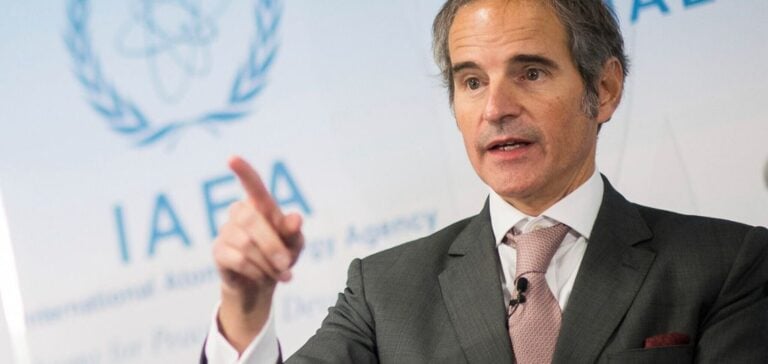The Islamic Republic of Iran will host Rafael Grossi, Director General of the International Atomic Energy Agency (IAEA), on Wednesday for critical discussions about its controversial nuclear program. This visit, described as pivotal by observers, takes place in an atmosphere of heightened mistrust between Iran and the West.
Mr. Grossi’s visit closely follows statements from Israel’s Defense Minister, asserting that Iran’s nuclear facilities are “more exposed than ever” to potential strikes. This rhetoric reflects Israel’s enduring concerns about Iran possibly acquiring nuclear weapons, a claim Tehran consistently denies.
Narrowing Diplomatic Options
In an interview with AFP, Rafael Grossi highlighted the urgency of finding a diplomatic solution. While the IAEA is permitted to conduct inspections in Iran, it demands greater transparency regarding the country’s nuclear facilities. According to Mr. Grossi, “the depth and ambition of Iran’s nuclear program” require additional assurances.
Iran’s nuclear activities have advanced significantly since the 2015 Vienna agreement, which sought to curb its capabilities. Following the United States’ withdrawal from the deal in 2018, Tehran has intensified uranium enrichment, reaching levels close to the 90% threshold needed for a nuclear weapon, compared to the initial cap of 3.65%.
A Tense International Context
Mr. Grossi’s visit comes at a strategic moment, marked by Donald Trump’s re-election as U.S. president. During his first term, Mr. Trump pursued a “maximum pressure” policy against Iran, withdrawing the U.S. from the 2015 deal. He recently stated his intention to avoid direct confrontation with Tehran while maintaining the U.S. stance on nuclear non-proliferation.
On the Iranian side, President Massoud Pezeshkian has expressed openness to resuming negotiations in hopes of easing economic sanctions. However, talks remain deadlocked. Since 2021, inspections of nuclear sites have been drastically reduced, exacerbating tensions between Iran and the IAEA.
Historical Legacy and Outlook
Iran’s nuclear program, initiated in the 1950s with U.S. assistance, is governed by the Nuclear Non-Proliferation Treaty (NPT), which Iran ratified in 1970. However, disagreements persist over whether its objectives are civilian or military. While Iran asserts religious opposition to nuclear weapons, critics highlight the risks associated with its stockpiling of fissile material.
The outcomes of Rafael Grossi’s discussions with Iranian leaders will be decisive in clarifying Tehran’s intentions and easing regional tensions.






















